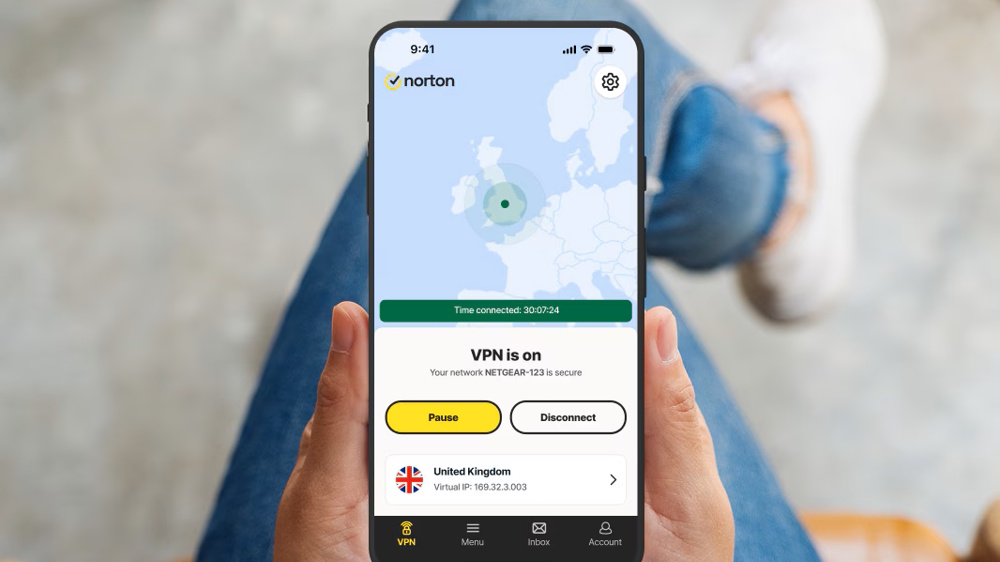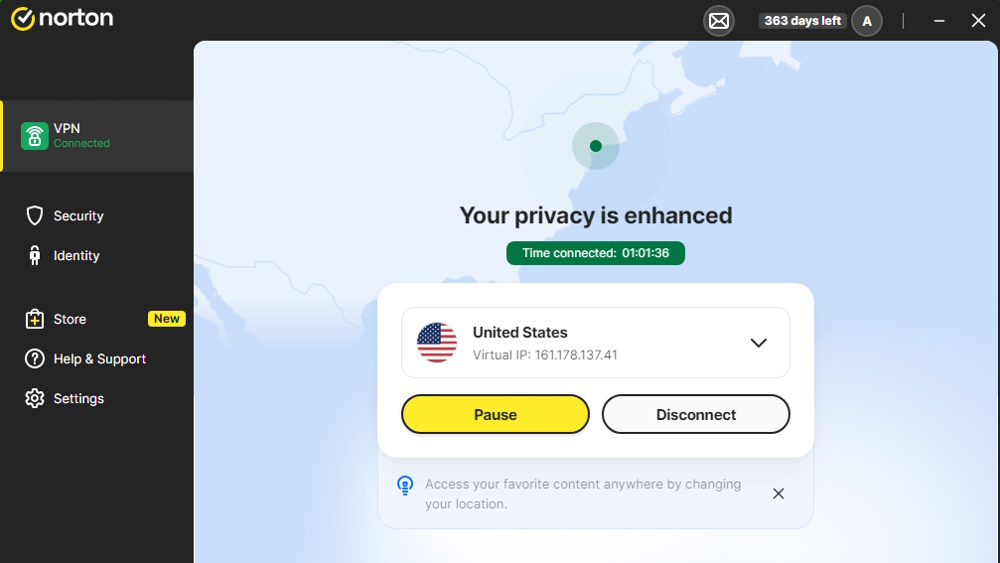Norton VPN could become much faster thanks to a feature many VPNs don't offer
Norton VPN just added OpenVPN DCO support on Windows

- Norton VPN just added support for OpenVPN Data Channel Offload (DCO) to its Windows VPN client
- The company's internal tests recorded doubled connection speeds and 15% lower latency, all while keeping the same OpenVPN security standards
- Norton now joins a short list of VPN providers that have rolled out DCO support
Norton has just given its users a major VPN upgrade, and it's one that many of the best VPN services are yet to offer.
The company has rolled out OpenVPN Data Channel Offload (DCO) support to its Windows VPN client. OpenVPN DCO works by shifting the heavy lifting of encryption from software into your computer's hardware, boosting speeds and lowering latency.
The feature is now live for new Windows users and as an update for existing customers. With this move, Norton VPN joins a small but growing group of VPN providers that are leaning into DCO.
How does Norton's new OpenVPN DCO work?

Norton VPN has added DCO to its OpenVPN protocol. OpenVPN has been around for a long time and is one of the most widely used VPN protocols in the world. While secure and versatile, it's often slower than newer protocols like WireGuard. That's exactly what DCO aims to fix.
OpenVPN DCO boosts connection speeds by moving the heavy encryption work from the virtual private network (VPN) app into the operating system’s kernel, which handles tasks directly with your hardware for far greater efficiency.
As Himmat Bains, Product Lead at Norton VPN, explains, OpenVPN DCO is a performance boost feature for OpenVPN as it eliminates bottlenecks and utilizes system resources more efficiently.
"Think of it as moving from a crowded city street to an express lane – same destination, far less congestion," Bains told TechRadar, adding that Norton VPN is now one of the first VPNs to include this feature.
"We've found connection speeds have more than doubled, and a latency reduction of 15%. As more people demand both speed and privacy from a VPN, we're excited to make this available to customers looking to use the OpenVPN protocol," Bains added.
These improvements are bound to make gaming and streaming via VPN a much more pleasant, seamless experience, although Norton warns that the exact performance increase will vary. It all depends on how far you are from a given VPN server.
How to enable OpenVPN DCO in Norton VPN
According to Norton's announcement, DCO is rolling out for all Windows users. So, if you're already subscribed, you'll need to update your VPN client to the Windows v25.8 version or higher. If you're a new subscriber, you will get access to the feature right away.
Enabling it should be simple. All you need to do is make sure you're using the OpenVPN protocol while connecting to Norton VPN, as DCO is unavailable on other protocols.
If you're a new subscriber, you can try Norton VPN through a 30-day free trial. After that, plans include Norton VPN Standard, Plus, and Ultimate, starting at the equivalent of $3.33 per month on a one-year plan.
Norton VPN is not the first to offer OpenVPN DCO access
Norton is one of a very short list of VPN providers that now offer access to OpenVPN DCO. Aside from Norton VPN, you'll find services such as ExpressVPN, Surfshark, Windscribe, and PrivadoVPN.
ExpressVPN supports OpenVPN DCO on Windows, but it has also rolled out speed upgrades across other protocols. It used to be pricier than Norton, but now, you can customize your subscription plan based on your needs, making it more competitive.
Meanwhile, Surfshark is generally one of the fastest VPNs around, so we're curious to see how it'll match up against Norton. Apart from DCO support, Surfshark’s FastTrack promises up to 70% faster connection speeds.
We've reviewed all of these, and we have also recently refreshed our Norton VPN review. We'll have to go back and test its performance claims now that DCO has been fully rolled out. However, we've previously marked it down for poor OpenVPN speeds. This update might just be the change that it needs to rank higher among its competitors.
You might also like

Monica is a tech journalist with over a decade of experience. She writes about the latest developments in computing, which means anything from computer chips made out of paper to cutting-edge desktop processors.
GPUs are her main area of interest, and nothing thrills her quite like that time every couple of years when new graphics cards hit the market.
She built her first PC nearly 20 years ago, and dozens of builds later, she’s always planning out her next build (or helping her friends with theirs). During her career, Monica has written for many tech-centric outlets, including Digital Trends, SlashGear, WePC, and Tom’s Hardware.
You must confirm your public display name before commenting
Please logout and then login again, you will then be prompted to enter your display name.